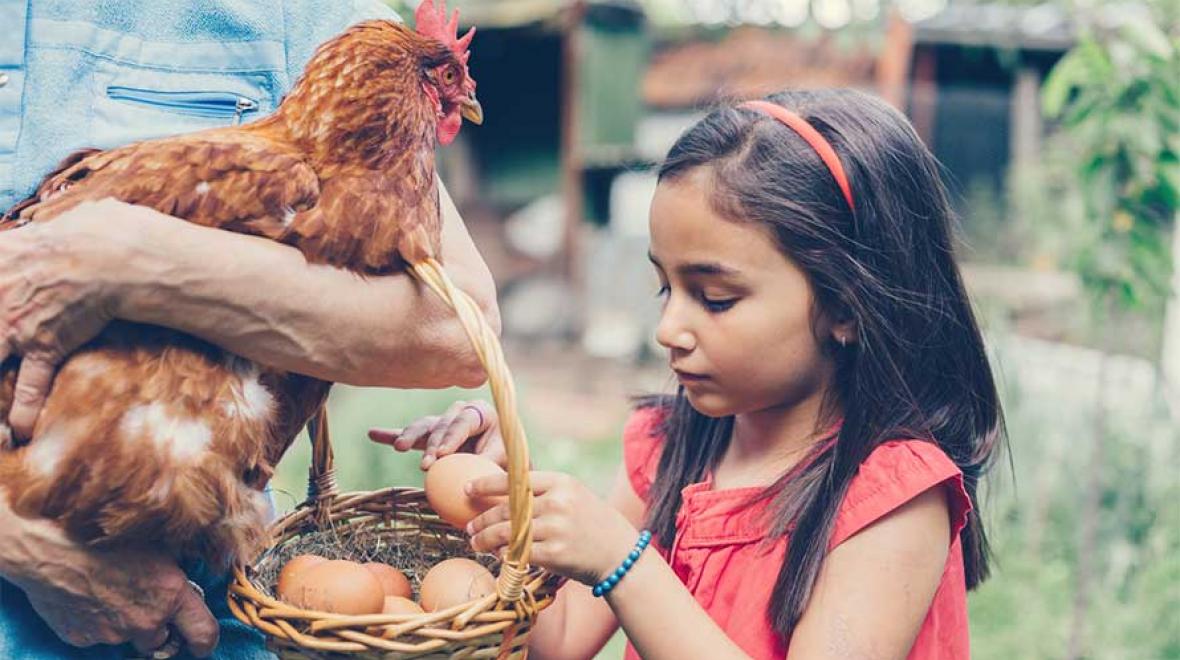How to Get Started With Backyard Chickens

When they're ready for the coop
The cute fuzz-ball stage of chickhood only lasts a week before your babies start to grow pin feathers and become awkward teenagers. It’s amazing how quickly they grow up! Provide them with low perches to get them used to the idea of roosting — they may or may not figure it out at this age. Chicks can be moved outside at about six weeks of age if the weather is mild and they are protected from weather and cold temperatures. Consider bringing them back inside for the evening during chilly spring nights.
Feed
Chicks stay on starter feed for six to eight weeks, and then go to a chick-grower feed until they’re ready to lay, at 20 weeks of age. At that point, you’ll switch them over to layer feed. Feed is available (trundle back to the feed or pet store) as crumble or pellets, and it’s designed to meet their balanced nutritional needs.
Going organic
Organic chicken feed is often available for an additional expense.
Storage
Keep chicken feed dry in an airtight container; otherwise it gets moldy, which can make your birds sick. Don’t buy more than a couple of months' worth at a time to ensure they’re always eating fresh feed. A chicken eats approximately 100 pounds of feed per year.
Water
Chickens must have access to clean, fresh water at all times. Each chicken can drink about a pint of water a day, even more in very hot weather. It’s a basic necessity; they’ll quit laying if they get too thirsty.
Kitchen scraps, etc.
Your chickens will be delighted to devour kitchen scraps. Just avoid feeding meat to chickens so that they don’t develop a taste for it; excessive pecking and cannibalism can become a problem in a flock.
Treats
Cracked corn is a favored treat. It’s not a complete food, but do keep some around. Mealworms are also a favorite.
Medications
Chicks are vaccinated at the hatchery, and starter chick feed contains some medications. Some owners recommend feeding chickens pumpkin seeds a couple of times a year to cure any worms they might have; others give them vitamin C in their water once in a while.











